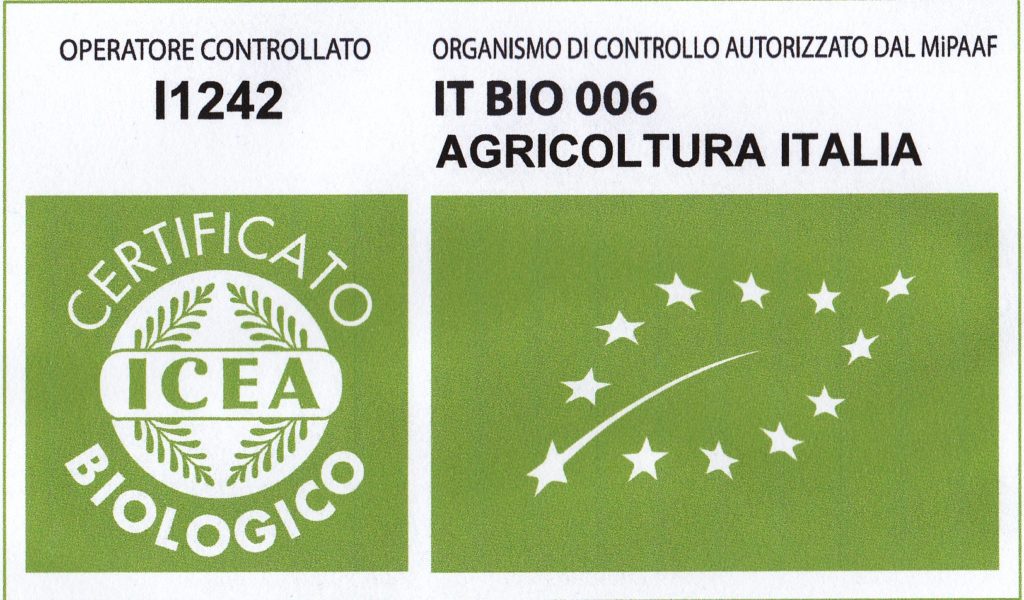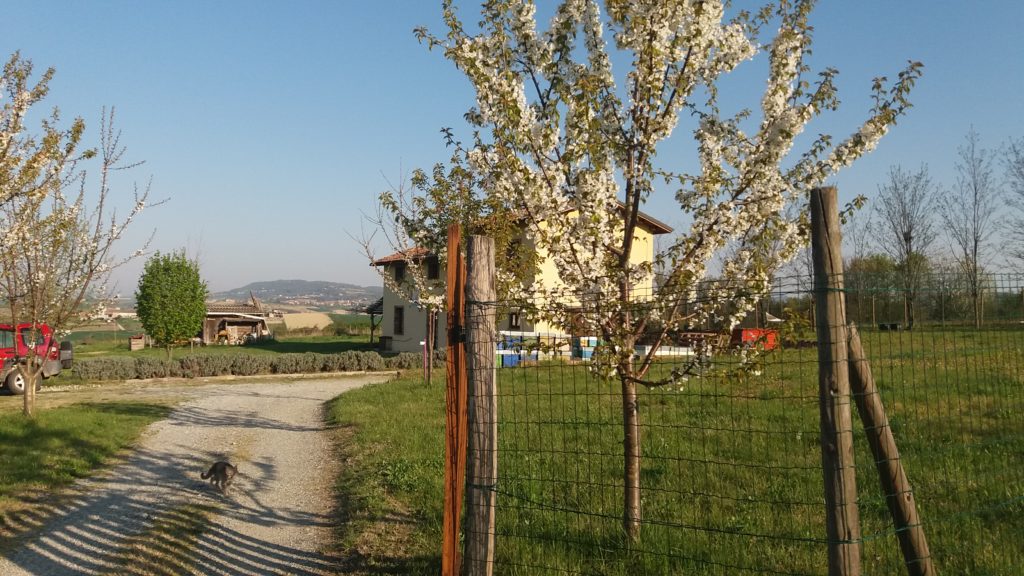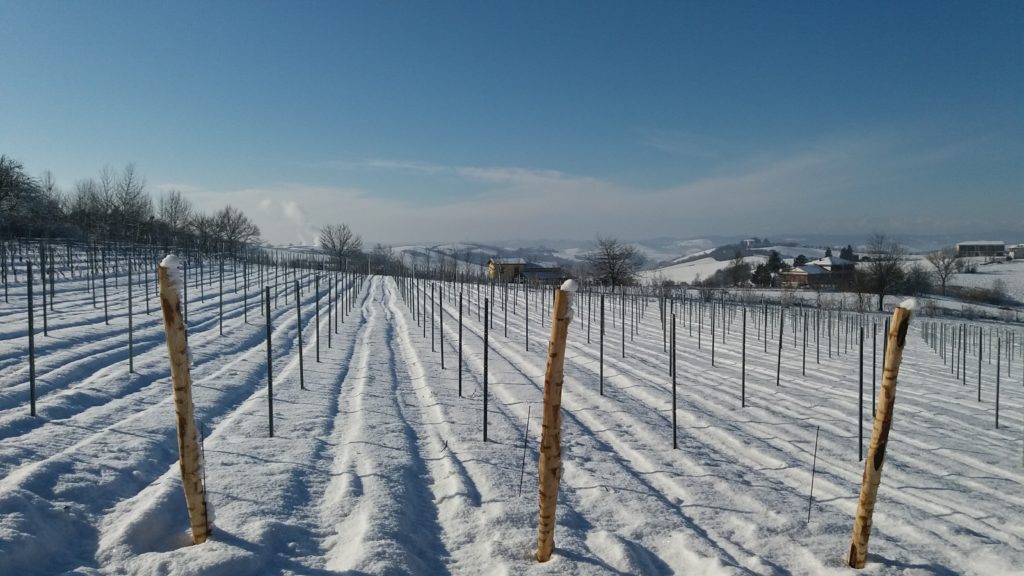Welcome to the heart of Monferrato
The Opi, dialect name of the place (Opio region), is a small family-run farm dedicated to the cultivation of vines and beekeeping. The company covers an area of about 4 hectares in a single body, two of which are planted with vineyards. We currently manage about 200 beehives for the production of honey, and 100 fertilization centers for the breeding of queen bees.
Since 2010 the whole company has been certified organic


The company headquarters is located on a natural balcony from which a panorama extends that is lost in a sea of hills until it reaches the splendid chain of the Piedmontese Alps, the main peaks such as Monviso, Monte Rosa and Rocciamelone are clearly visible.

Monferrato is a magical land, fascinating in every season of the year, rich in Romanesque churches, medieval villages, vineyards and woods; since 2014 it has been a UNESCO heritage site
The legend of Aleramo
The birth of Monferrato is linked to the legend of Aleramo, a young knight at the court of King Otto I, he fell in love with the king’s daughter and he agreed to the wedding, but since Aleramo did not have land to bring as a dowry, the king decided to donate to the young couple all the land that Aleramo had managed to circumscribe by riding for three days and three nights. During the wild ride Aleramo’s horse lost an iron and the young man used the head of a brick (mun in dialect) to re-make it, thus Monferrato (mun-frà) was born.
Why organic
Organic farming represents, in our opinion, the future of small-scale agriculture, it allows you to cultivate in a natural way with minimal environmental impact, without sacrificing the quality of the products. Agricultural practices are regulated by a specification that prohibits the use of all synthetic chemistry, and all herbicides and any type of forcing are also banned. Cultivating with the organic method does not mean giving up the harvest and quality because even without the use of the much “indispensable” chemistry it is still possible to produce.
Organic farming is based on a concept of “life” that is, it does not destroy the balance of the soil and the microclimate, such as the maintenance of rural hedges that give shelter to insectivores, not using chemicals, the soil is rich of earthworms, the vineyard is populated by butterflies, bumblebees, lizards, crickets that autonomously keep the population of harmful insects under control, therefore no insecticide treatments or anything else are necessary; then clearly to go to harvest the antioid and antiperonosporic treatments are essential but only by using copper and sulfur.
Conventional agriculture, unlike organic, is based on a concept of “death” or: “I kill everything to grow only what I want”. And so you go to the herbicide to remove the weeds, but in doing so I break the microclimate so I don’t have any useful insects, then I don’t pass with my nice tractor and then go bulldozer against the rural hedges, but in doing so I no longer have insectivores and therefore you go of insecticide, but in doing so the aphids are not under control and therefore you go to aficida and so on … the result is that every year in Italy alone about 130,000 tons of plant protection products are spread in the fields (source arpat) that contaminate the environment, water and above all remain with non-negligible residues in food. Some scientific studies have shown that pesticides are present in our blood, hair, sperm and our adipose tissue.
Organic farming is the only way to go, especially for small businesses like ours.